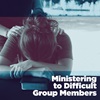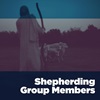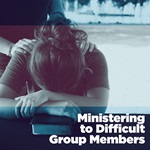It was a cold December morning. My wife and I were in downtown Chicago on a weekend away from the kids. As a small-group pastor I am often able to sneak away in December, a relatively slow month. We were enjoying the time away, planning what to do with the rest of our day when my wife got a text that stopped her in her tracks.
Nine months earlier, our friends Ted and Carrie had gotten pregnant. We had gotten to know them at church, and I knew them through connecting them into a small group. We had learned that this pregnancy was a big deal for them. They had experienced numerous miscarriages in the past, seen several different doctors, and wondered if they would ever have another child. Less than a year earlier Ted’s mother passed away. On the heels of such a painful loss, this pregnancy seemed to carry more weight than the others.
When they found out they were expecting a little boy, they were filled with a mix of excitement and fear. The couple delicately held on to what little hope they had, knowing full well that high expectations could devastate their fragile family.
So when my wife stared at her phone motionless and quietly said, “Carrie’s baby,” the world stopped. The emotion on her face was not of joy. It was a mix of shock and dread.
We immediately packed up and got in the car for the hospital. We would later find out that Ted and Carrie’s baby, on his due date, had died unexpectedly from complications completely unrelated to their previous miscarriages. No one could have predicted it.
In a time like this, Scripture evokes conflicting and confusing emotions. Reading a verse like Hebrews 10:23 can feel painful: “Let us hold unswervingly to the hope we profess, for he who promised is faithful.” Our friends were swerving—there was no avoiding that. They did not feel hope, and they had trouble seeing God’s faithfulness. We had trouble seeing it, too.
The Small Group Steps In
Ted and Carrie were in a small group, but they asked to take a break for a while. They were so broken that they could not muster the emotional stability to sit in a circle and process with their friends. What they did not expect, however, was that their circle was not content with that. The circle came to them.
The morning after the news, I received a call. The small group had organized a prayer circle at church the next morning. Many of us gathered together in the prayer room for a time of gut-wrenching, real-life cries to God for their family.
The group told me that tasks like cleaning the house were nearly impossible for the family. Finding unboxed baby bottles and cute sets of clothing brought waves of despair. Group members flocked to the house to prepare it for a homecoming.
I also learned that running errands and cooking took too much energy, especially when they had a 3-year-old daughter with them who asked a lot of questions. Their supporters took the daughter on adventures and brought groceries and meals to their door.
While Hebrews 10:23 was painful to see, the passage continues for a reason. Hebrews 10:24–25 read, “And let us consider how we may spur one another on toward love and good deeds, not giving up meeting together, as some are in the habit of doing, but encouraging one another.” In many ways, this group kept their family going.
Finally, when they could not muster the strength to plan a funeral their small group stepped in. It was a day I will never forget. As the small=group pastor I knew the connections that were in the room. I saw group members scattered throughout the day serving in so many big and small ways, simply to make the day go smoothly. A couple from their small group hosted guests at the door. A few members stood by a beautifully decorated table, greeting those who came and helping them sign the guest book. Another couple from the group was standing in as ushers, directing people where to sit. I got just a little glimpse of what God must see all the time: people loving people. It was a somber, painful, and completely beautiful image, and I felt privileged to see what others were not able to see.
I used to read Paul’s word, “Carry each other’s burdens, and in this way you will fulfill the law of Christ” with some confusion (Galatians 6:2). Fulfilling the law of Christ is a tall order. Can we boil it down to this one command, “Carry each other’s burdens”? When I saw this shining moment of Christian community I understood it differently. How proud must our God be as he watches moments like this. As our father his smile must be beaming as he watches his children act like him.
The church service, of course, glorified God. But I think what brought God the most glory that day was the love demonstrated by each small-group member serving Ted and Carrie.
—Jon Noto is a community life pastor and licensed clinical counselor at Willow Creek Community Church's North Shore campus.












